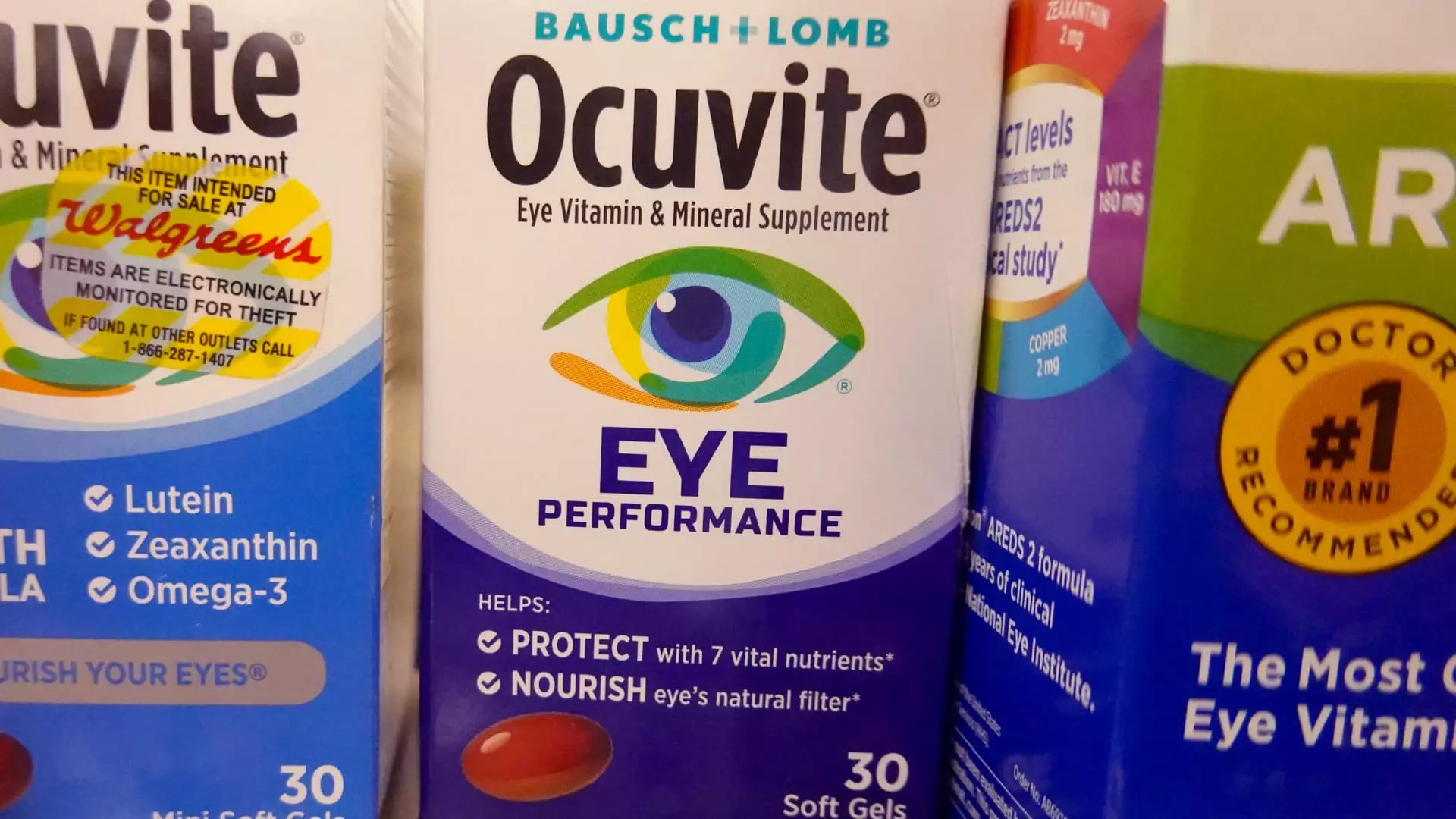In recent years, the Canadian-based specialty pharmaceutical company Bausch Health has undergone significant transformation, evolving from its previous identity as Valeant Pharmaceuticals. With a diverse portfolio spanning a multitude of therapeutic areas—such as dermatology, gastroenterology, ophthalmology, and neurology—the company stands as a formidable force in the healthcare landscape. However, Bausch Health also faces considerable hurdles as it attempts to reshape its corporate identity and enhance shareholder value.
Bausch Health operates through five primary divisions: Bausch + Lomb, Salix Pharmaceuticals, International Rx, Solta Medical, and Diversified Products. Each division specializes in distinct markets, contributing to a diversified revenue stream. Central to Bausch Health’s identity is the Bausch + Lomb division, renowned for its eye care products and services. This segment not only bolsters the company’s image but also represents a crucial revenue generator. Despite its strengths, Bausch Health grapples with a significant burden of debt, currently estimated at $20.4 billion—a factor that poses risks for its financial future.
The company has seen significant involvement from activist investor Carl Icahn, who filed a 13D with the U.S. Securities and Exchange Commission to advocate for strategic changes on February 11, 2021. Icahn’s presence has stirred discussions surrounding board composition and company strategy, indicating a potential shift in operational dynamics. His influence rose further when he successfully brokered an agreement to increase the board size, which now comprises 10 directors. Within this context, the appointment of experienced portfolio managers further signals a strategic pivot focused on enhancing shareholder value.
A crucial development in Bausch Health’s trajectory occurred with the spin-off of Bausch + Lomb (BLCO) as a separate public entity in May 2022. Bausch Health retains an 88% ownership stake in BLCO, highlighting the significance of this division to its overall strategy. However, the spin-off also offers Bausch Health a unique opportunity to leverage the value of BLCO while addressing its balance sheet issues. The enterprise value of BLCO currently hovers around $10 billion, but it is restrained by the overarching debt situation of Bausch Health. Reportedly, BLCO has already engaged Goldman Sachs to explore the possibility of a sale, which could unlock substantial value for the organization.
The earnings forecast for BLCO highlights considerable potential; its estimated performance for 2025 suggests an EBITDA of approximately $966 million. By comparison, peers like The Cooper Companies and Alcon achieve higher enterprise value-to-EBITDA multiples, reinforcing the notion that BLCO’s market evaluation may not fully reflect its intrinsic value. If a strategic sale were to transpire, it could significantly enhance shareholder returns while alleviating some of Bausch Health’s financial strain.
Beyond the landscape of eye care, Bausch Health’s Salix division primarily focuses on gastroenterology, deriving a substantial 87% of its revenue from the drug Xifaxan. However, the looming patent expiration in January 2028 poses a threat to the long-term sustainability of this revenue stream. Analysts estimate a present value of $4.25 billion for the Xifaxan business assuming a conservative no-sales scenario post-2027.
On the operational side, Bausch Health has other profitable arms that are pivotal for its survival. The remaining business segments, such as the International Rx and Solta Medical divisions, present a mixed bag of opportunities and risks. For instance, while the International Rx division generates a notable part of operating income, its valuation against peer multiples illustrates the challenges of maximizing investor returns amid heightened scrutiny.
The Road Ahead: Assessing Valuation and Potential
In valuation terms, the complexities inherent in Bausch Health underscore the need for a nuanced approach. While applying various EBITDA multiples suggests a theoretical valuation around $25.93 billion for the entire company post-BLCO sale, market dynamics could alter this outlook significantly. Debt remains a major concern, yet the ability to retire a large portion of this burden through a successful sale highlights a pathway to financial stability.
Bausch Health’s current stock prices reflect skepticism in the market; however, with strategic decisions from key figures on the board, there may be room for optimism. The effective unification of experienced leadership alongside proactive engagement with investors positions the company to potentially navigate its challenges effectively.
Bausch Health’s journey is fraught with risks and opportunities—a duality that necessitates careful monitoring and strategic execution. As the company aims to redefine itself in an increasingly complex pharmaceutical landscape, its ability to harness value from its diverse segments will be paramount to reclaiming investor confidence and ensuring long-term success.

